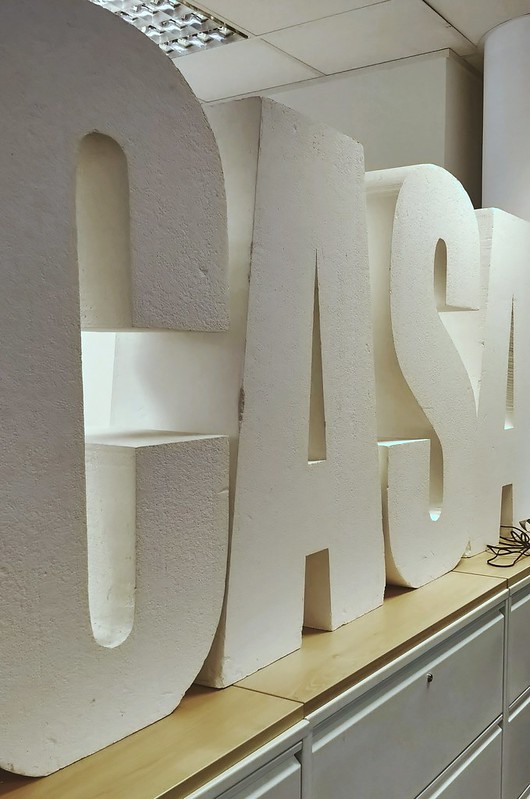Digital land sprint notes
This sprint we’ve made great progress with analysing developer contributions research and improving brownfield land tools and data. We’re also procuring for the local plans alpha phase.
Compulsory purchase orders
We’ve completed redacting! In total, we’ve redacted and proof read 115 compulsory purchase order inspector reports and decision letters, which have now been sent to our policy colleagues for a final check.
Brownfield land
We’ve continued to collect the brownfield land registers published by local planning authorities. We’ve been adding and changing links as we notice links breaking, or when authorities notify us of a new register.
Paul created a pipeline process to turn the collected files into a national dataset of brownfield sites and took a copy of the documentation pages. Colm has started a report of the collection to go alongside our dataset pages. Jake then used this data to make a map, which now shows the latest brownfield sites as circles, where their size represents the size of the site in hectares.
The collection includes a number of resources we’ve collected over the past 18 months, including around 60 files collected by Jake’s proof of concept validator, which are no longer available on council websites.
Platform
Stephanie and Lorna have started to develop a research plan for the ‘check your data’ tool, outlining the questions we want to answer and the features of the tool we may look to test with users in the coming months.
Developer contributions
Lorna presented a playback of user research findings from our visits to local planning authorities. It was agreed that our user needs fall into a few key themes, which we would focus on in the subsequent workshop:
- showing value
- setting expectations
- increasing capability around preparing the data, making the files, and publishing the files
- giving and receiving feedback
- data model
Following the playback, Helena ran a workshop with the Digital Land team and our policy colleagues, where we:
- mapped the main channels and artefacts we currently use to support and communicate with local authorities, and the links between them
- discussed in groups the ways that each artefact met the user needs identified in the research
- came up with further ideas for meeting the needs
We’ve since spent some time pulling the workshop outputs together and next we’ll set an action plan for improving support for local planning authorities producing the data files and Infrastructure Funding Statements.
Local plans
We’re procuring a team to work on the next phase of local plans and the overview is now up on Digital Marketplace. Since posting this, we’ve been answering questions submitted by applicants which can be read on the Digital Marketplace web page.
Proptech
Jess and Rebecca attended the UK PropTech Association Seminar on ‘Lessons from other Industries’ exploring “technology adoption in the legal industry, finance industry and health care”, involving corporates and tech start-ups in the industries.
Team
Victor Dominello, Minister for Customer Service in New South Wales visited us to talk about improving the user experience of planning. We were joined by our Chief Planner, Steve Quartermain.
On Tuesday Paul and Natalie ran a workshop on open data for housing and planning at The Bartlett Centre for Advanced Spatial Analysis (CASA). They were joined by colleagues from the Analysis and Data Directorate and Bill Roberts of Swirrl, who showed students the department’s opendatacommunities.org website.
Natalie and Paul also enjoyed a lunchtime lecture by Alasdair Rae on an English atlas of inequality using important statistical data commissioned by our department. Paul took scrappy notes:
Roadmap
Matt, Helena and Emily worked on some web content detailing our team governance and ways of working. We think this will be useful for other teams we work with to get to know a bit about our ways of working.
Rebecca has been building our roadmap on our team wall, which is working well as a way to visualise our work and show others what we’re working towards.
Helena and Stephanie facilitated a team hypotheses workshop where we:
- reviewed the team’s high level hypotheses around the purpose of the team, how we work with suppliers and users to make data available
- generated questions and other hypotheses to help inform the service design and user research plan
Some of the team used the board to dot-vote which of these hypotheses they saw as being the most important
Stephanie, Helena and Lorna have been using the roadmap and hypotheses work to start building a user research and service design plan to help deliver our Q4 2019 / 20 commitments, and how our research can inform the process of developing the roadmap for the next quarter.
Following this workshop Helena and Stephanie analysed the insights and walked our vision wall with Paul and Matt, focussing on the local government user. We've further sessions ahead with other team members to flush out the many other hypotheses we hold around the policy maker, Digital Team, and PropTech users. We'll also review the prototypes we've made. Once we have a good set of hypotheses we can use them to better prioratise our work.






